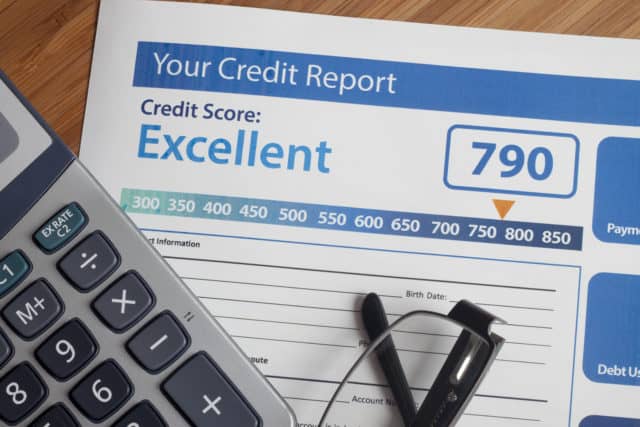To make Wealthtender free for readers, we earn money from advertisers, including financial professionals and firms that pay to be featured. This creates a conflict of interest when we favor their promotion over others. Read our editorial policy and terms of service to learn more. Wealthtender is not a client of these financial services providers.
➡️ Find a Local Advisor | 🎯 Find a Specialist Advisor

If you live in a “developed country,” you know that two of the three biggest-ticket items you’re likely to ever buy are cars and homes.
(The third is likely a college education – those come with some steep price tags these days! Sheesh!)
It’s true for me too (except the college part – that was almost free in my case, and the third large expense was buying an office condo).
Buying a brand-new car was anxiety-provoking more than once.
And signing a “telephone book’s worth” of documents closing on a house, with that humongous amount listed in that HUD-1?
Even if it isn’t my first time, fuggedaboutit!
I was curious to compare my thoughts on this with other top personal finance writers on Medium (an idea I shamelessly stole from Charlie Brown – well, it was with permission, so let’s call it borrowing rather than stealing).
Here’s what came out of it…
Let’s Start with the Biggest-Ticket Item – How Much Should You Pay for a Home?
Here’s what I asked some of my colleagues and co-writers:
“What’s the most you’ve paid for a primary residence (or would pay, if you’ve never owned one), in multiples of your annual income at that time, and what’s the most you’d pay today?”
Before we get to the answers, let’s acknowledge the big, wrinkled-skin, gray-trunked pachyderm in the middle of the room…
Lots of people think you should never buy a home, with some going so far as to call a home a liability rather than an asset.
This reminds me of one of my absolute favorite Churchill quotes:
“…it has been said that democracy is the worst form of Government except for all those other forms that have been tried from time to time…” – Winston Churchill
What does democracy have to do with homeownership?
Not much, except that I think old Winnie’s quote applies pretty well here too.
Buying a home may be the worst housing decision you can make, except for all other forms most people try. According to my analysis, on average, owning a typical home will cost you about $8000/year adjusting for inflation if you sell 40 years after buying it.
That’s a terrible investment!
No wonder some (mistakenly) call a home a liability!
However…
The average inflation-adjusted annual cost of renting the same home for the same 40 years ends up 360% higher than buying and selling! In fact, even if you stay in the home for as little as 3 years, in most cases you’ll probably end up slightly ahead buying and selling.
With that out of the way (***shoving the elephant out the oversized door***)…
Let’s start with Charlie Brown, whose Medium profile says, “11x top writer. Traded a wine career for writing. Expect entrepreneurship, minimalism, finance + personal development.”
Charlie says:
“I have owned a house. At the time, it was worth around 10 times what my husband and I made together (we made very little because we were establishing our business). We were only able to do it because we had saved a pretty large deposit thanks to a redundancy payment. I won’t be buying another house.”
Next up, Ben Le Fort, an economist by day, personal finance writer and enthusiast 24/7, whose Medium profile reads, “Making of a Millionaire editor | Personal finance writer | Author of ‘The Financial Freedom Equation’.”
Ben says:
“We still live in the first home we bought which at the time was 1.875 times our household income.”
Short and sweet! And from what Ben writes elsewhere, that home is worth a lot more these days…
On to Jason Clenenden, the person who probably knows more than the rest of us about buying homes, since that’s his chosen path to retirement riches. His Medium tagline? “Self-taught investor helping busy professionals learn how to ignore mainstream advice and build real wealth. Build your ark today!”
Jason says:
“My first house was around 3 times my income, second house around 2.3 times (though it was a much more expensive house, my salary had increased significantly). I would try to keep future home purchases to around 2x annual salary or less, which is difficult to do these days with the run up in prices!”
My answer?
For me, the highest was 4× our earnings at the time.
Now that we live in our dream home, I don’t anticipate buying another for a long time if ever. That dream home came in at 3× our income when we bought it. As in Jason’s case, it was much more expensive than our previous homes, but our income went up faster, so the multiple is lower.
The Takeaways on How Much You Should Pay for a Home
We see a wide range, from less than 2× to over 10×. However, the one who paid 10× later sold her home and says she wouldn’t buy another.
If we set aside that outlier, a good idea considering her current thoughts on homeownership, the numbers all came in a much tighter range of 1.875× to 4×.
What does that mean for the proverbial “average Joe?”
According to the St. Louis Fed, the median US income is $67,521. With the median US home price recently hitting $363,300 according to the Wall Street Journal, this indicates a ratio of nearly 5.4!
However, in 2017 Zillow said: “At $62,500, the median household income for a typical homeowner is $25,000 less than the median household income of a typical home buyer.” If we scale both numbers to the 2020 median income number from the Fed, we find that homebuyers’ median income nowadays is probably around $94,500.
Use this number to figure the ratio between the median home price and the median income of homebuyers, and you get 3.8×, which agrees rather well with our experts’ assessment (backed by our own hard-earned money).
Next, How Much Should You Pay for a Car?
My question here was similar:
“What’s the most you’ve paid for a car, measured in percent of your annual income at that time (so paying $20k when you earn $40k/year would be 50%, which is higher than paying $40k when you make $120k/year which works out to 33%), and what’s the most you’d be willing to pay in multiples of your current annual income?”
Charlie?
“I’ve never owned a car! I used my husband’s that he bought in 2008 and we didn’t sell until 2020, but personally, I’ve never owned one. If I ever owned one, I would be willing to pay the very least amount of money possible because I simply don’t care about cars. Let’s say about 10% of my household income.”
Color me shocked!
Not by the 10% number, but by her being able to survive in modern society without a car!
Ben?
“Approximately 25%.”
Again, short and to the point!
Jason?
“I guess my first car when I started working was around 33% of my annual salary. I would try to keep future car purchases under 20% of my salary.”
As for me?
The max was 26% when I was much younger. These days I could easily afford more than that fraction. However, I feel a bit like Charlie.
I can’t say that I don’t care about cars, but I like super-reliable ones (Toyotas and Hondas, baby!), and while a sporty look is nice, a comfortable ride from point A to point B is more important to me.
So, these days, I prefer to keep things under 20%.
The Takeaways on How Much You Should Pay for a Car
First, consider Charlie’s input.
If you can live comfortably without a car, more power to you! It’s better for your wallet, and more sustainable too!
If you’re like most of us though and need a car, the data say that buying new and driving the car for at least 10 years is the most cost-efficient way to go (unless you’re an amateur or professional auto mechanic).
If you do buy a car, our panel of top personal finance writers like spending 1-4 months’ worth of income, with 3-4 months likelier if your income isn’t 6-figure or better.
According to cnet.com, the average price for a new car recently hit $45k. Using the Fed’s recent median income number as a comparison point, that average new car costs 8 months’ worth of median income – double what our panel would pay!
If you’re looking to buy a car these days, and your income is close to the median, you may want to keep its cost down to ~$22,500.
Here are 9 economy-class cars that would fit the bill according to kbb.com and Edmunds.com.
- 2022 Hyundai Elantra, starting at $20,855
- 2022 Honda Civic, starting at $22,800 (a smidge over $22,500, but I used to own one so I couldn’t resist…)
- 2022 Toyota Corolla, starting at $21,070 or Corolla Hatchback from $21,810
- 2021 Kia Forte, starting at $18,855
- 2021 Nissan Sentra, starting at $20,335
- 2021 Mazda 3, starting at $21,445
- 2021 VW Jetta, starting at $19,990
- 2022 Subaru Impreza, starting at $19,755
If you want to buy something sportier, say the 2022 Toyota GR Supra, which Edmunds says starts at $44,215, you may want to verify your income is north of $132,645 (more if you buy one of the higher trims)…
The Bottom Line
As all of us personal finance writers acknowledge, personal finance is just that – personal. What’s right for me may be completely wrong for you. However, it’s probably a good idea to at least consider what people who routinely write about personal finance do with our own finances when trying to decide what to do with yours.
That’s what the above is all about.
Are you ready to enjoy life more with less money stress?
Sign up to receive weekly insights from Wealthtender with useful money tips and fresh ideas to help you achieve your financial goals.
Disclaimer: This article is intended for informational purposes only, and should not be considered financial advice. You should consult a financial professional before making any major financial decisions.

About the Author
Opher Ganel, Ph.D.
My career has had many unpredictable twists and turns. A MSc in theoretical physics, PhD in experimental high-energy physics, postdoc in particle detector R&D, research position in experimental cosmic-ray physics (including a couple of visits to Antarctica), a brief stint at a small engineering services company supporting NASA, followed by starting my own small consulting practice supporting NASA projects and programs. Along the way, I started other micro businesses and helped my wife start and grow her own Marriage and Family Therapy practice. Now, I use all these experiences to also offer financial strategy services to help independent professionals achieve their personal and business finance goals. Connect with me on my own site: OpherGanel.com and/or follow my Medium publication: medium.com/financial-strategy/.
Learn More About Opher
To make Wealthtender free for readers, we earn money from advertisers, including financial professionals and firms that pay to be featured. This creates a conflict of interest when we favor their promotion over others. Read our editorial policy and terms of service to learn more. Wealthtender is not a client of these financial services providers.
➡️ Find a Local Advisor | 🎯 Find a Specialist Advisor








